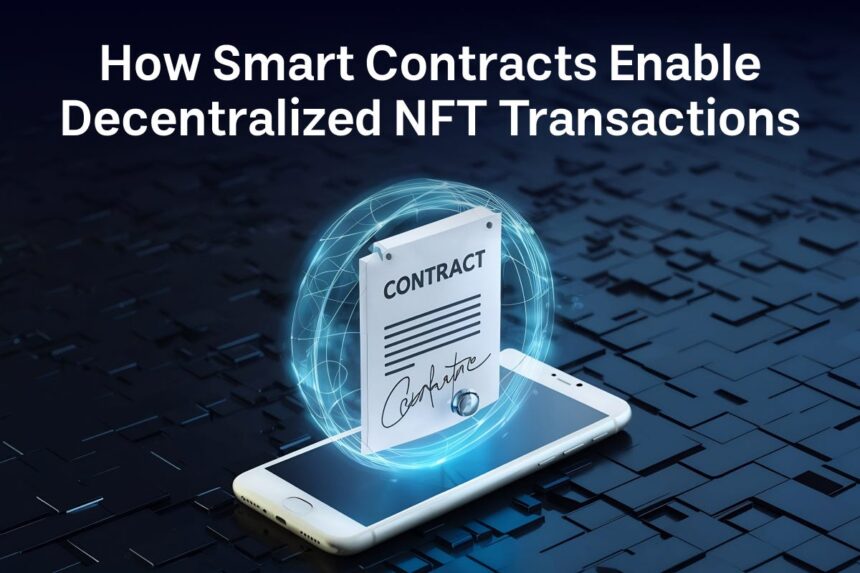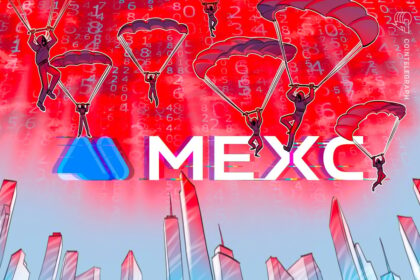Non-fungible tokens (NFTs) have become a major force in digital ownership, art, gaming, and business. At the center of every NFT transaction is a smart contract — a self-executing program that runs on a blockchain, automating agreements and making transactions transparent, secure, and efficient. For businesses and clients exploring NFT solutions, understanding how smart contracts enable decentralized NFT transactions is critical to making informed decisions and building trust in this technology.
In this blog, we’ll break down the fundamentals of smart contracts, their role in NFT transactions, and how businesses can benefit from working with a reputable Smart Contract Audit Company to create robust, secure, and transparent NFT solutions. We’ll also explore key features, real-world use cases, and best practices for deploying smart contracts in NFT marketplaces.
A smart contract is a piece of code that lives on a blockchain and automatically executes actions when certain conditions are met. Unlike traditional contracts, smart contracts do not require a central authority or intermediary to enforce the rules. This makes them ideal for digital transactions between parties who may not know or trust each other.
Key Features of Smart Contracts:
- Automated execution of agreements
- Immutable and tamper-proof records
- No need for intermediaries
- Transparent and auditable by all participants
- Can be programmed for complex logic, including royalties, auctions, and more
NFTs represent unique digital assets — such as art, collectibles, music, or in-game items — on a blockchain. Each NFT is distinct, with its ownership, provenance, and metadata recorded on the blockchain. The decentralized nature of NFT transactions means that ownership can be transferred peer-to-peer, without relying on centralized platforms or authorities.
Why Decentralization Matters:
- Reduces risk of fraud and manipulation
- Removes single points of failure
- Promotes transparency and trust among users
1. Automating Ownership and Transfers
When an NFT is created (minted), a smart contract defines its properties, such as the creator, metadata, and unique token ID. This contract also encodes the rules for transferring ownership. When a buyer purchases an NFT, the smart contract verifies the transaction, updates the ownership record, and triggers any additional logic, such as royalty payments to the original creator.
2. Enforcing Rules and Royalties
Smart contracts can be programmed to automatically pay royalties to creators each time an NFT is resold. This ensures creators are compensated for their work, even as it changes hands multiple times.
3. Enabling Marketplace Functions
NFT marketplaces use smart contracts to automate listing, buying, selling, bidding, and delisting of NFTs. These contracts handle all the logic, including:
- Accepting bids and determining winners in auctions
- Managing transaction fees and commissions
- Updating listings in real-time
- Ensuring only valid transactions are processed
4. Security and Transparency
All transactions executed by smart contracts are recorded on the blockchain, creating an immutable audit trail. This transparency builds trust among buyers and sellers, as anyone can verify the history and authenticity of an NFT.
Businesses looking to enter the NFT space can benefit from smart contract-driven NFT transactions in several ways:
- Reduced Operational Costs: No need for intermediaries or manual processing.
- Faster Settlements: Transactions are executed automatically, reducing delays.
- Increased Security: Immutable blockchain records and automated execution reduce the risk of fraud.
- Programmable Logic: Custom rules for royalties, access control, and more can be embedded directly into the contract.
- Global Reach: NFTs and smart contracts operate across borders, opening new markets and audiences.
Deploying smart contracts requires expertise in blockchain programming and security. Bugs or vulnerabilities in smart contracts can lead to financial loss, data breaches, or exploitation by malicious actors. A Smart Contract Audit Company specializes in reviewing, testing, and verifying smart contract code to identify and fix potential issues before deployment.
Key Services Provided:
- Code review for vulnerabilities and logic errors
- Security testing against known attack vectors
- Compliance checks with industry standards
- Recommendations for best practices and improvements
Partnering with an experienced audit company is essential for businesses that want to build trust with users and avoid costly mistakes in their NFT projects.
Let’s break down the typical flow of an NFT transaction powered by smart contracts:
- Minting: The creator uploads digital content and metadata. The smart contract mints a new NFT, assigning ownership and unique identifiers.
- Listing: The NFT is listed for sale or auction. The smart contract records the listing details and conditions.
- Buying/Selling: When a buyer initiates a purchase, the smart contract checks if the NFT is available and if the buyer has sufficient funds.
- Transfer: Upon successful verification, the smart contract transfers ownership of the NFT to the buyer and releases funds to the seller (and creator, if royalties are set).
- Recordkeeping: The entire process is recorded on the blockchain, providing a transparent and immutable history.
While smart contracts bring many advantages, they are not without limitations:
- Immutability: Once deployed, smart contracts cannot be changed. Bugs or errors can be costly.
- Human Factor: Poorly written code can introduce vulnerabilities.
- Complexity: Advanced logic can increase the risk of errors if not properly tested.
Best Practices:
- Use established standards (like ERC-721, ERC-1155 for NFTs)
- Conduct thorough testing and third-party audits
- Keep contracts as simple as possible
- Regularly monitor for new security threats
1. Art and Collectibles
Artists mint NFTs to represent their digital artwork. Smart contracts automate sales, ownership transfers, and enforce royalties on secondary sales, providing ongoing revenue streams.
2. Gaming
NFTs represent in-game assets like weapons, skins, or characters. Smart contracts handle the trading and ownership of these assets, allowing players to buy, sell, or trade items securely.
3. Music and Media
Musicians and content creators use NFTs to sell music, videos, or exclusive experiences. Smart contracts manage distribution, royalties, and access rights.
4. Real Estate and Domain Names
NFTs can represent ownership of digital real estate or domain names. Smart contracts automate the buying, selling, and transfer processes, reducing paperwork and manual intervention.
As NFT adoption grows, smart contracts will continue to play a central role in automating, securing, and scaling decentralized transactions. Emerging trends include:
- Multi-chain Interoperability: Smart contracts that work across different blockchains, expanding reach and reducing costs.
- Advanced Royalty Models: More flexible and customizable royalty structures for creators.
- Integration with DeFi: Combining NFTs with decentralized finance (DeFi) protocols for collateralized loans, fractional ownership, and more.
- User-Friendly Tools: Simplified interfaces for creating, managing, and auditing smart contracts, making NFT solutions accessible to a broader audience.
If your business is considering launching an NFT marketplace, integrating NFTs into your products, or exploring new digital revenue streams, working with experienced smart contract developers is essential. The right development partner will:
- Guide you through the process of designing, coding, and deploying secure smart contracts
- Help you choose the right blockchain and NFT standards for your use case
- Provide comprehensive testing and audit services to minimize risks
- Offer ongoing support and updates as your project evolves
Smart contracts are the backbone of decentralized NFT transactions, automating ownership transfers, enforcing rules, and building trust in digital marketplaces. For businesses and creators, they unlock new opportunities for monetization, efficiency, and transparency.
However, the complexity and immutability of smart contracts mean that expertise in development and security is non-negotiable. Partnering with a trusted Smart Contract Audit Company is the best way to build robust, secure, and future-proof NFT solutions.
If you’re looking to develop smart contracts for NFTs or launch a decentralized NFT marketplace, Codezeros offers end-to-end Smart Contract Development services. Our team combines deep blockchain expertise with rigorous security practices to deliver reliable, transparent, and scalable NFT solutions for businesses of all sizes.
Contact Codezeros today to discuss your project and discover how our Smart Contract Development services can help you unlock the full potential of NFTs.
Before you go:










